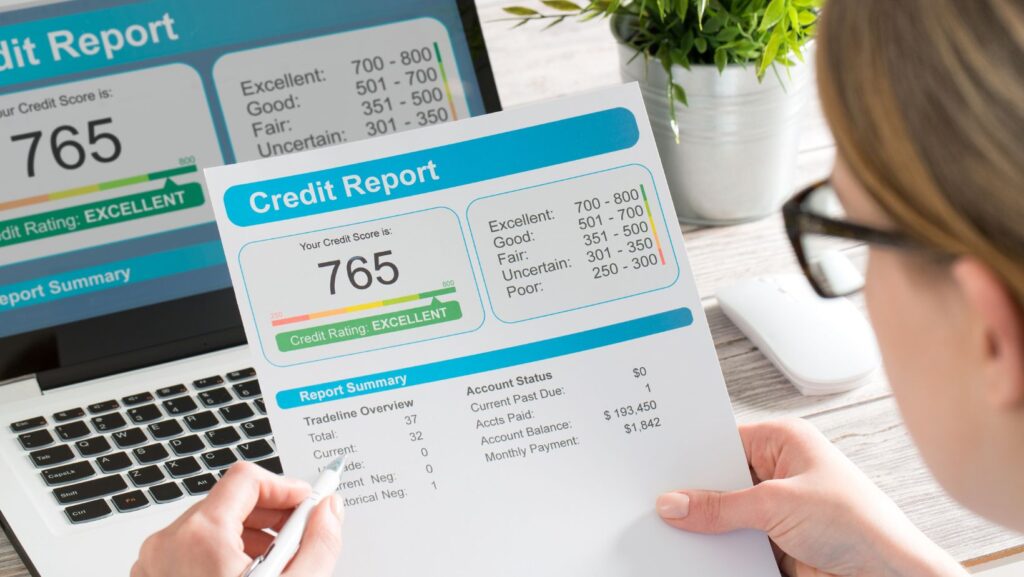
Regularly reviewing your credit report is crucial for managing your overall financial health. But if you’re like a lot of people, it looks like a foreign language. By learning how to read your credit report, you should be able to make smarter financial decisions.
Understanding the Structure of Your Credit Report
When you first open your credit report, you’ll notice that it’s divided into several sections: personal information, credit accounts, inquiries, and public records. Each section tells a different story about your financial history, and together, they create a snapshot of your overall credit profile.
Personal Information
The first section you’ll see contains your personal information – your name, current and previous addresses, date of birth, Social Security number (often abbreviated for security reasons), and sometimes even your employment history. This information is used to identify you accurately, so it’s crucial that everything here is correct.
If you see any incorrect information, such as a misspelled name, old address, or unfamiliar employer, report it to the credit bureau immediately. Errors here can indicate mistakes in your file or even early signs of identity theft. Ensuring your personal information is accurate helps prevent mix-ups with other people’s credit histories, which can affect your score.
Credit Accounts
This section includes details about all your credit accounts, which may include credit cards, auto loans, mortgages, student loans, and any other lines of credit, both open and closed. For each account, you’ll find information on the balance, credit limit, payment history, and account status.
When reviewing this part of your report, make sure all listed accounts are actually yours. Any accounts you don’t recognize could be a red flag for identity theft. Beyond confirming ownership, look at each account’s status. Are there any accounts marked as delinquent or charged off? Make sure this is accurate, as a delinquent account can significantly impact your credit score. If you see a mistake, dispute it with the credit bureau to have it corrected.

Additionally, verify that your payment history is correct. A single late payment can harm your credit score, so if you spot a misreported payment date, you’ll want to address it right away. Ensuring the accuracy of your payment history can prevent unnecessary hits to your credit score.
Credit Inquiries
Each time you apply for credit – whether it’s a credit card, loan, or even housing – a credit inquiry is made. Inquiries are recorded in two ways: hard inquiries and soft inquiries. Hard inquiries (which happen when you apply for new credit) can slightly impact your score, while soft inquiries (like checking your own report) do not affect your score.
Look over the list of inquiries to confirm that you authorized all hard inquiries. Unfamiliar inquiries could indicate someone is applying for credit in your name. Too many hard inquiries within a short period can also lower your score, so if you’re planning to apply for a major loan, try to space out applications to prevent any unintended effects on your score.
Public Records
This section includes any public records that may affect your credit, such as bankruptcies, foreclosures, and tax liens. These records are usually damaging to your credit score and can stay on your report for up to seven to ten years.
If you see a public record that doesn’t belong to you, it’s important to take action immediately. Public records on your report should be carefully monitored because they have some of the most significant negative impacts on your credit score.
Why Accurate Reporting Matters
Your credit report isn’t just for you – lenders, landlords, insurers, and even some employers may look at your credit history to assess your reliability.
Attorney Jibrael S. Hindi explains that the Fair Credit Reporting Act (FCRA) “governs the collecting and reporting of consumer credit info, including how the credit bureaus may obtain the information, for how long they may keep it, and how they can share it with other entities.”
The FCRA was designed to protect your rights and ensure that your credit report accurately reflects your creditworthiness. If you find inaccuracies, the FCRA also provides you with legal rights to dispute them.
Spotting Signs of Identity Theft
One of the biggest reasons to regularly review your credit report is to catch any signs of identity theft. Common indicators include unfamiliar accounts, unauthorized inquiries, and incorrect personal information.

If you see any of these red flags, take immediate action by contacting the credit bureaus and filing a fraud alert on your report.
How to Dispute Errors on Your Credit Report
Errors can be harmful to your credit score, so if you spot one, act quickly. You can file a dispute directly with the credit bureau online, by phone, or by mail. Include any documentation you have to support your claim. The bureau typically has 30 days to investigate and respond, and if they find your claim valid, they’ll remove or correct the inaccurate information.
Here’s a quick rundown of how to approach errors in each section of your report:
- Personal Information: If names or addresses are wrong, contact the bureau to correct them.
- Credit Accounts: Verify all accounts and payment histories and dispute any errors.
- Credit Inquiries: Report any unauthorized inquiries.
- Public Records: If you find a public record that doesn’t belong to you, file a dispute immediately.
Staying on Peak of Your Credit Health
Reviewing your credit report at least once a year is a good practice, and you’re entitled to a free credit report every year from each of the major bureaus through AnnualCreditReport.com. Make it a habit to review your report regularly, ensuring that each section accurately represents your financial history. Catching errors early can save you from financial headaches down the line and even help you maintain a healthier credit score.










